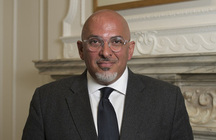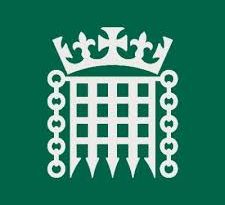Nadhim Zahawi – 2022 Statement on the Education White Paper
The statement made by Nadhim Zahawi, the Secretary of State for Education, in the House of Commons on 28 March 2022.
With permission, Mr Speaker, I will make a statement on the publication of the schools White Paper.
Since 2010, we have been on a mission to give every child a great education. We have made huge strides, but we know there is still further to go on that journey, which my predecessors began and I am proud to lead today. Too many children still do not get the start in life that will enable them to go on and make the best use of their talents and abilities. Sadly, disadvantaged pupils or those who have special educational needs are less likely to achieve the standards we expect for them. Since 2010, we have been rolling out many changes to our education system—changes that have driven up standards, lifted us up the league tables internationally and given us measurable evidence of what works. We will now put that evidence to use and scale up what we know will create a high-quality system for children, parents and teachers.
We have an ambition that by 2030 we will expect 90% of primary school children to achieve the agreed standard in reading, writing and maths. In secondary schools, I want to see the national GCSE average grade in both English language and maths increase from 4.5 in 2019 to 5. By boosting the average grade, we show a real determination to see all children, whatever their level of attainment, do better. A child who goes from a grade 2 to a grade 3, or one who goes from a grade 8 to a grade 9, contributes to that ambition as much as a child on the borderline who may go up from a grade 4 to a grade 5. So every parent can rest assured that their child is going to get the attention they deserve, however well they are doing.
It goes without saying that every child needs an excellent teacher. This White Paper continues our reforms to training and professional development, to give every child a world-class teacher. The quality of teaching is the single most important factor within a school for improving outcomes for children, especially for those from disadvantaged backgrounds. Our vision is for an excellent teacher for every child in our country, but if we are to do that, we need to make teaching even more of an attractive profession. To make sure that it is, we will deliver 500,000 teacher training and development opportunities by 2024, giving all teachers and school leaders access to world-class evidence-based training and professional development, at every stage of their career. We will also make a £180 million investment in the early years workforce. Teachers’ starting salaries are set to rise to £30,000, as we promised in our manifesto, and there will be extra incentives to work in schools with the most need.
A world-class education also needs environments in which great teaching can have maximum impact. Therefore, we will improve standards across the curriculum, behaviour and attendance. Making sure that all children are in school and ready to learn in calm, safe, supportive classes is my priority. All children will be taught a broad, ambitious, knowledge-rich curriculum and have access to high-quality experiences. We will set up a new national curriculum body to support teachers, founded on the success of the Oak National Academy. This body will work with groups across the sector to identify best practice, deepen expertise in curriculum design and develop a set of optional resources for teachers that can be used either online or in the classroom. These resources will be available across the United Kingdom, levelling up education across our great country. We will continue to support leaders and teachers to create a classroom where all children can learn in a way that recognises individual needs and abilities. In addition, we are going to boost our ability to gather and share data on behaviour and attendance.
We will move forward with a national behaviour survey to form an accurate picture of what really goes on in schools and classrooms and, of course, to modernise our systems to monitor attendance. We will introduce a minimum expectation for the length of the school week to the national average of 32-and-a-half hours for all mainstream state-funded schools from September 2023, at the latest. Thousands of schools already deliver that but a number do not and that needs to change.
Too many children, especially those who are most vulnerable, routinely fall behind and never catch up with their peers. The awful covid pandemic has made that worse. Even though I am relieved to tell the House that the latest research on learning loss and recovery shows that pupils continue to make progress, there is still much more to do. That is why today’s White Paper sets out a really ambitious plan for scaling up that recovery, building on the nearly £5 billion of recovery funding that has already been announced.
My children are the most important thing in the world to me and I know that I am not alone in saying that. All parents want their children to be happy and to grow up to a future that is full of promise, so I am today making a pledge to parents; it is a pledge from me and this Government via schools to all families. The parent pledge is that any child who falls behind in English or maths will receive timely support to enable them to reach their potential. A child’s school will let parents know how their child is doing and how the school is supporting them to catch up.
Tutoring has been a great success and that is making a difference. It is here to stay and we want it to become mainstream and a fundamental pillar of every school’s approach to delivering the parent pledge. There will be up to 6 million tutoring packages by 2024.
We know that the approaches that I have outlined make a huge difference to pupils, so I have asked myself this. We have 22,000 schools in England; how do we ensure that these happen systematically in every school for every child? How do we get that consistency across the system? It has become clear from my six months in the Department studying the evidence that well-managed, tightly managed families of schools are those that can consistently deliver a high-quality and inclusive education. It is one where expertise is shared for the benefit of all and where resources and support can help more teachers and leaders to deliver better outcomes for children.
With that in mind, by 2030, we intend for every child to benefit from being taught in a family of schools, with their school in a strong—I underline the word “strong”—multi-academy trust or with plans to join or form one. That move towards a fully trust-led system, with a single regulatory approach, will drive up standards. We also want to encourage local authorities, if they think that they do well in running their schools, to establish their own strong trusts, and we will back them. There will be a clear role for every part of the school system, with local authorities given the power that they need to support children. We will set up a new collaborative standard requiring trusts to work constructively with other partners.
I know from my experience in business and in rolling out the covid vaccine that the hardest thing for any complex system, whether it is health or education, is scaling up, but I have faith both in the brilliant leaderships that we already have in our school systems and in our educationalists to be able to deliver on this White Paper. We want to spread brilliance throughout our country, levelling up opportunity and creating a school system where there is a clear role for every part of the system, all working together and all focused on one thing: delivering outstanding outcomes for our children.
Soon, everyone will see what we all know—that this Conservative Government are busy making our schools the very best in the world. We should be so proud of how far we have come and rightly hopeful about where we are going next. For that reason, I commend this statement to the House.


